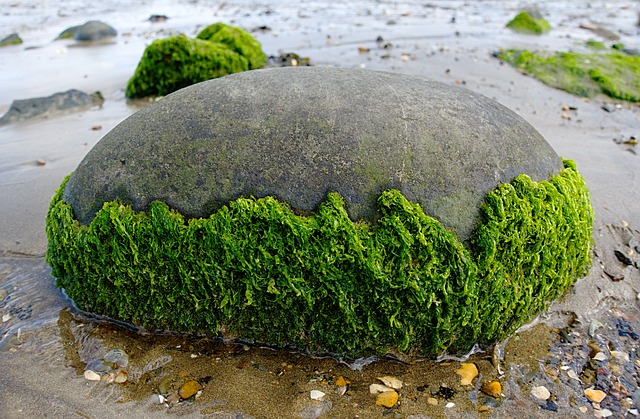What are algae and how does it benefit our ecosystem?
- June 19, 2018
- Posted by: Admin
- Category: Uncategorized, Water StorageTank

We often get to see the green stuff floating in the bodies of water. Have you ever wondered what is it? It is algae. Yes, we are referring to algae. But what exactly is it and what does it do? Let us find the answer.
Algae may have been around for more than 475 million years on Earth. They are found in different sizes ranging from microscopic unicellular species such as Chlorella to massive multicellular one such as the Giant Kelp. Mostly seen in green but can be found in brown, red and cyan colours. They are most commonly seen in freshwater and saltwater environments apart from tree trunks, in soils, snow banks and hot springs. The different factors influencing the growth of algae include the process of photosynthesis, carbon dioxide, an optimum temperature ranging between 16 to 35-degree Celsius and nutrients like nitrogen and phosphorus.
The growth of algae in water storage tanks is not safe and therefore we recommend you to use high-quality water storage tanks that prevents its growth. Although they are considered harmful for human consumption, there are many other beneficial uses of algae which many of us are not aware of. Yes, you heard it right. Algae can be beneficial to us in many ways. Let us see how.
Algae generate about 50% of oxygen on Earth by using photosynthesis to pull carbon dioxide from the atmosphere to create oxygen.
Algae is being used as soil conditioners, fertilisers and cattle feed.
They provide a strong alternative to fossil fuels by producing energy-rich oils. The bio fuels that they produce does not release any additional carbon dioxide into the atmosphere.
They are a rich source of many vitamins and micronutrients and therefore have high nutritional value. Some algal varieties are high in omega 3 fatty acids which are preferred by vegetarians as fish oil is the only alternative source of the same.
Algae can treat sewage and eliminate the need for toxic chemicals in the process.
Algae are one of the main sources of food for the aquatic creatures.
In short, algae are essential to the ecosystem. We assume that there are many more benefits of algae which is yet to be explored and exploited. The research is on and will be unveiled soon.
